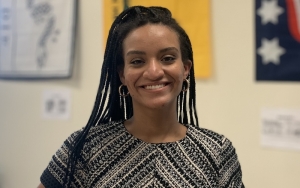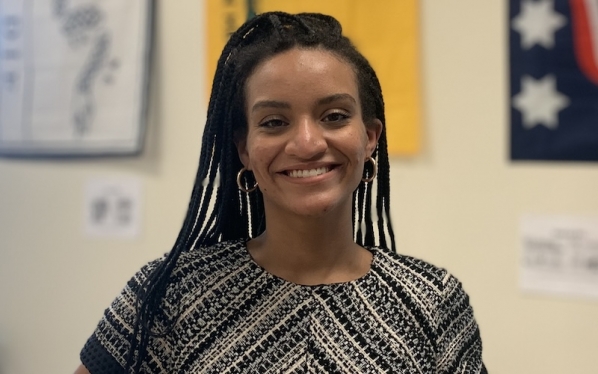A native of Charlotte, NC, Emma Burdon ('21) and her older brother Ben were raised by their parents, Bob and Tamara Burdon. After graduating from Providence High School in 2017, she completed a year at East Carolina University before transferring to Appalachian State to complete her undergraduate degree. Burdon accredits this decision as, "... one of the best decisions I ever made." She completed her clinical internship in Fall 2021 at Ardrey Kell High School, where she taught American History II.
After graduating from App State, Burdon entered the private sector to work at Colony Family Offices, where she helps clients with wealth planning, investment management and fiduciary services.
What advice do you wish you received before starting your history ed courses and student teaching?
Emma Burdon: Confidence and adaptability are your greatest weapons during this journey. Although it's natural to feel like “inexperienced” is stamped across your forehead, this mindset often becomes a form of self-sabotage and limits your ability to manage the classroom, make positive impressions amongst faculty, and develop student learning. In many ways, I loved the relatability factor that is often synonymous with being a younger teacher; but, I knew that unless my external confidence reflected my maturity, knowledge, and skills, I would lose my ability to command their respect and attention. Furthermore, adaptability goes hand in hand with confidence. I can promise that there will be times that you create the perfect, detailed, and engaging lesson plan in theory, but then in practice, your students may struggle to execute the activity or grasp the learning objective the way in which you intended. Instead of shutting down, allow yourself to identify areas of the activity that were problematic and adjust your lesson. This is the best way to evolve and strengthen your teaching style.
What is the best part of teaching history/social studies?
EB: Seeing students who initially told me they were not “interested in history” become invested in a lesson, make historical and thematic connections, and voluntarily ask questions is inarguably the best part of teaching history. We have the privilege of teaching a topic that directly impacts every students’ daily lives and their future experiences, so regardless of a students’ perception of historical study, I can promise there will be lessons and topics that naturally ignite their interest and spark conversation. Do not take these moments for granted or dismiss an opportunity to develop interest into learning because of your “plan”. The most powerful moments in the classroom always came from a captivated audience. Lastly, making relationships with your students and getting to know them is the most helpful tool in lesson planning. Creating lessons with the intention to highlight different cultures, identities, and beliefs that may resonate with students is the best way to engage a classroom.
Suggestions for current BS History/Social Studies Education majors in field experiences:
EB: Look forward to uplifting the confidence of students as you begin your teaching career. During student teaching, there were so many moments where I looked upon a sea of blank faces or sleeping heads, and I internally questioned whether or not I was helping my student's knowledge of history. It is natural as a historian to feel the weight of your role and to believe in some ways you failed a generation if your lesson was underwhelming. However, as my clinical internship concluded, I received a letter that said, “Thank you for always seeming genuinely proud of me even if I got a 70 on a test, emphasizing my growth instead of my grade, and never making any of us feel like a failure.” Regardless of the struggles that will inevitably plague you as a teacher, try to remain driven by the long-lasting impact that your role as a teacher creates within individual lives.

